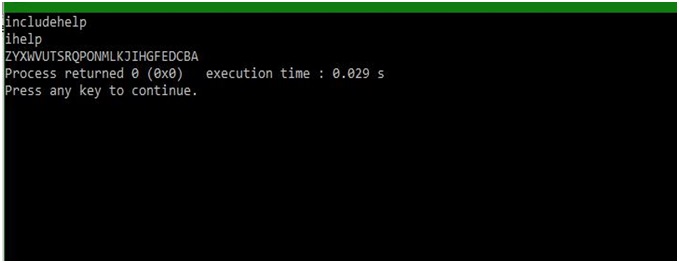Home »
C programs »
C stdio.h library functions programs
puts() and putchar() functions of stdio.h in C
In this article, we are going to learn about the putchar() and puts() function of stdio.h header file in C programming language, and use it put string and characters on console.
Submitted by Abhishek Sharma, on April 12, 2018
The function puts() is used to print strings while putchar() function is used to print character as their names specifies.
These functions are from the stdio.h class doing the jobs related to strings.
Example:
puts("I AM A STRING");
Output:
I AM A STRING
putchar("a");
Output:
a
You can also use printf() which have more options then these two functions.
stdio.h - puts() and putchar() functions Example in C
#include <stdio.h>
#include <string.h>
int main()
{
// initializing the variables
char a[15];
char b[15];
char c;
// coming string in a and b
strcpy(a, "includehelp");
strcpy(b, "ihelp");
// put a and b
puts(a);
puts(b);
// printing characters
for (c = 'Z'; c >= 'A'; c--) {
putchar(c);
}
return (0);
}
Output

C stdio.h Library Functions Programs »
Advertisement
Advertisement